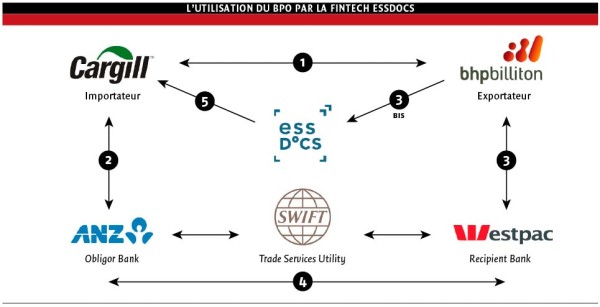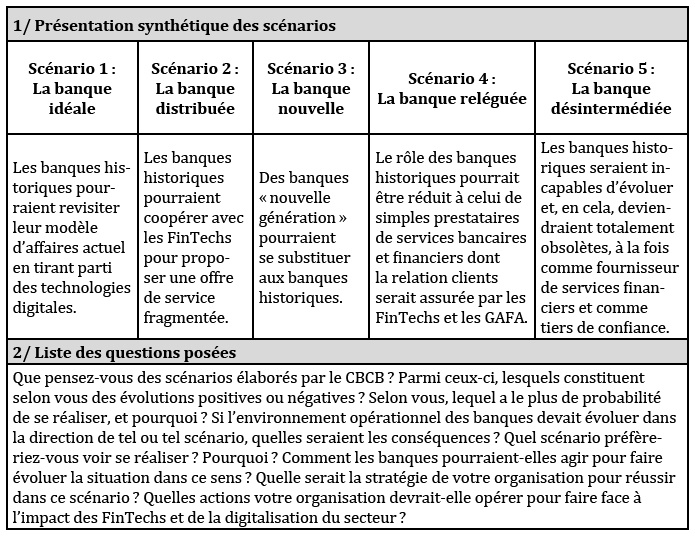
The American regulator, the FDIC, plans to strengthen its rules concerning banks collaborating with companies of fintech. According to these new proposals, banks must identify the true owners of these companies. This measure aims to ensure compliance and transparency in an industry where technological innovation is constantly changing the traditional financial landscape. The challenge is to ensure that financial institutions can adapt without compromising consumer security and trust.

The FDIC is proposing new rules requiring banks to better identify the beneficial owners of their fintech partners. These reinforcements aim to improve transparency and security in the banking sector undergoing digital transformation. This article explores the reasons behind these regulations, the FDIC’s expectations and the possible impacts on banks and their customers.
Table of Contents
ToggleThe new proposals from the FDIC
The US regulator, the Federal Deposit Insurance Corporation (FDIC), recently announced new proposals aimed at strengthening rules for banks working with insurance companies. fintech. According to these proposals, it would be imperative for banks to better identify the real owners companies with which they work. This initiative would ensure greater transparency and reduce potential risks associated with financial transactions.
The importance of transparency and security
The financial sector is undergoing rapid transformation thanks to the rise of fintech companies. These companies, with their focus on technology, are changing traditional banking dynamics. However, this transformation is not without risks. By requiring banks to identify the beneficial owners of their fintech partners, the FDIC wants to strengthen transparency and the security financial. This measure aims to prevent fraud and protect consumers.
FDIC expectations
The FDIC insists that banks keep complete and accurate records of their fintech customers. This includes detailed information on the real owners of these companies, to ensure that all transactions are traceable and comply with current regulations. By imposing these requirements, the FDIC wants to ensure that even mid-sized banks are subject to strict standards, thereby reducing financial risks.
The impact on banks and their customers
The impact of these new regulations will be considerable for banks and their customers. On the one hand, banks will need to invest in technologies and processes to reconstruct the records of their fintech clients. On the other hand, customers will benefit from a better protection and greater transparency in their transactions. This initiative could also increase customer confidence in the financial sector, knowing that their data is properly managed and secure.
Digital transformation and new challenges
The banking sector is in full swing digital transformation, and banks must adapt quickly to remain competitive. The integration of fintechs into their operations has become essential. However, with this transformation comes challenges such as customer data management and regulatory compliance. By implementing these new rules, the FDIC wants to ensure that banks can meet these challenges while maintaining financial safety and integrity.
In conclusion, the FDIC proposal requires banks to keep accurate records on their fintech customers, thereby ensuring financial transparency and security. This directive, although restrictive, is essential to protect the economy and consumers against potential risks.
- Identification of real owners: Banks need to know the real owners of the fintech companies they work with.
- Secure customer data: Importance of maintaining control and security of customer data.
- Compliance with regulations: Banks must ensure that fintech companies comply with current rules.
- Transparency: Clear and transparent communication between banks and fintech companies.
- Reinforced surveillance: Additional steps to monitor the activities of fintech partners.
- Risk prevention: Analysis of the risks associated with collaborations with fintechs.
- Business continuity: Ensure smooth and uninterrupted operations.
- Shared responsibility: Sharing responsibilities to guarantee financial security.
- Rigorous verification: Reinforced verification process for customer information.
- Protection against money laundering: Measures to detect and prevent money laundering.
- Deposit insurance: Ensure that customer funds are properly insured by the FDIC.
- Regular update: Frequently updating client files to reflect changes.
- Advanced technology: Use of advanced technologies for data management.
- Close collaboration: Close collaboration between banks and fintechs for better information management.
- Continuing education: Continuing training of staff on new regulations and technologies.
- Adaptability: Ability to quickly adapt to new rules and market requirements.
#CNU #qualification
— Olivier Martin (@Olivier__Martin) July 10, 2024
Le calendrier de dépôt des dossiers pour les demandes de qualification par les CNU en 2025 est fortement bousculé. Il faudra déposer son dossier complet avant le 22 novembre 2024, contre le 12 janvier cette année !@sup_recherche : ???? WTF ??? pic.twitter.com/WqRRy56dmG





